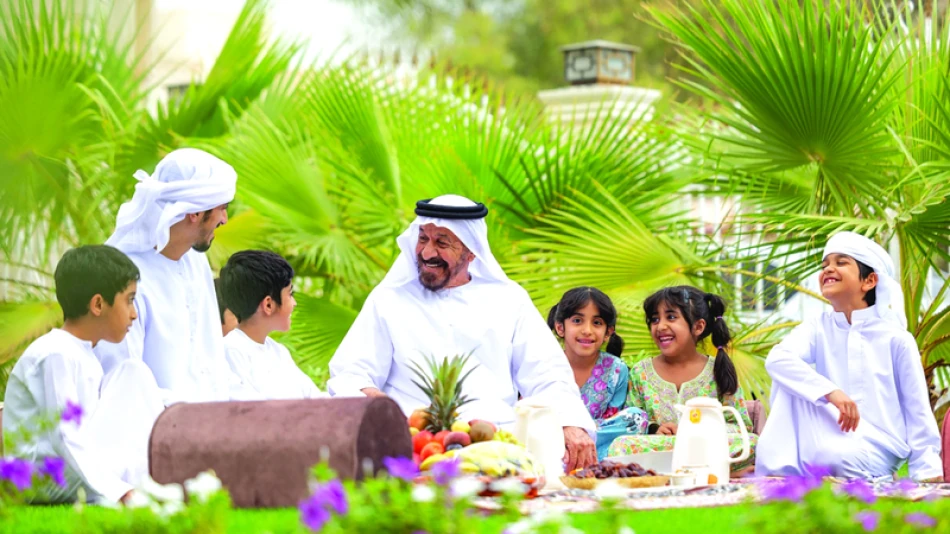
Discover 'Camp Happiness': A Family-Bonding Getaway Designed for Quality Time Together
UAE Entrepreneur Launches Tech-Free Heritage Camps to Combat Digital Addiction and Strengthen Family Bonds
A new initiative in Abu Dhabi is tackling one of modern society's most pressing challenges: the erosion of family connections in the digital age. Social entrepreneur Omar Abdullah has created "Happiness Camps" – technology-free heritage retreats designed to help families reconnect without the distractions of smartphones and digital entertainment. The project has been selected as one of the innovative solutions in the third edition of the "Wayyakum" initiative, which addresses social challenges in Abu Dhabi.
The Digital Detox Solution
Abdullah's camps offer families a unique one or two-day experience in tourist farms and heritage sites where modern technology is completely absent. Participants must surrender their smartphones and electronic devices, creating an environment where genuine face-to-face interaction becomes the primary form of communication.
The concept taps into growing global concerns about screen addiction and its impact on family relationships. Research consistently shows that excessive screen time correlates with increased rates of depression, anxiety, and social isolation – particularly among children and teenagers who have grown up in the smartphone era.
Preserving Cultural Identity Through Disconnection
What sets these camps apart from typical digital detox programs is their emphasis on Emirati heritage and cultural values. By combining technology-free environments with traditional activities, the initiative serves a dual purpose: strengthening family bonds while ensuring cultural traditions pass to younger generations.
This approach reflects broader efforts across the Gulf region to balance rapid technological advancement with cultural preservation. The UAE, despite being a global tech hub, has increasingly recognized the need to maintain its cultural identity amid rapid modernization.
Mental Health Benefits Backed by Science
Abdullah's initiative aligns with mounting scientific evidence about the mental health benefits of reduced screen time and increased face-to-face interaction. Studies have demonstrated that real-world social connections are significantly more effective than virtual ones in reducing depression and anxiety risks.
The camps specifically target what psychologists call "continuous partial attention" – the modern tendency to never fully focus on one activity or person due to constant digital distractions. By removing these distractions entirely, families can experience what researchers term "deep social connection."
A Growing Global Movement
The UAE's approach mirrors similar initiatives worldwide. Countries like South Korea have established digital detox centers to combat internet addiction, while Scandinavian nations promote "digital hygiene" in schools. However, Abdullah's integration of cultural heritage makes this initiative particularly relevant for preserving traditional values in rapidly modernizing societies.
Economic and Social Implications
Beyond individual family benefits, the initiative addresses broader social challenges that have economic implications. Stronger family units typically correlate with reduced social services costs, lower crime rates, and improved educational outcomes – factors that contribute to overall societal stability and economic growth.
The program's selection for the Wayyakum initiative also reflects Abu Dhabi's strategic approach to social innovation, investing in grassroots solutions to prevent larger social problems rather than merely addressing their symptoms.
Scalability and Future Impact
The success of such programs could influence policy decisions regarding technology regulation and family welfare programs across the region. As governments grapple with the unintended consequences of digital transformation, community-based solutions like Abdullah's camps offer practical models for maintaining social cohesion.
The initiative represents a sophisticated understanding that technological progress and cultural preservation need not be mutually exclusive – a lesson particularly relevant for rapidly developing nations seeking to maintain their social fabric while embracing innovation.
Most Viewed News

 Sara Khaled
Sara Khaled






